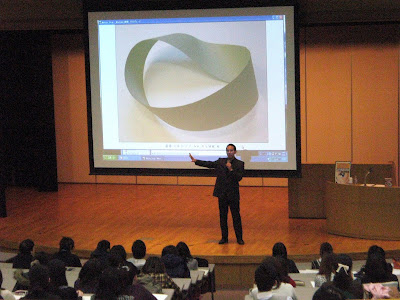Earlier this fall, on the day when then candidates Barack Obama and John McCain were visiting the campus of one of my old schools, Columbia University, I was visiting with nonfiction author and CU journalism professor David Hajdu in his festooned campus office to talk comics and culture. NYC was cloud-covered and felt ominous and edgy--entirely apt, as it was another September 11, seven years after the act. I had to navigate police and media phalanxes to get to David, but his energetic conversation made the trek well worth it. I first read Hajdu's work via my dear pal Paul, author and editor at FSG, who sent along a copy of David's first book, Lush Life , about the excruciating genius of Billy Strayhorn, Duke Ellington's largely unsung collaborator, in 1997. Over ten years ago. Yeesh. When I heard that Hajdu's latest book, The Ten Cent Plague , was about the birth and aborted growth of American comics, I was immediately interested, given my own study of Japan's ...







